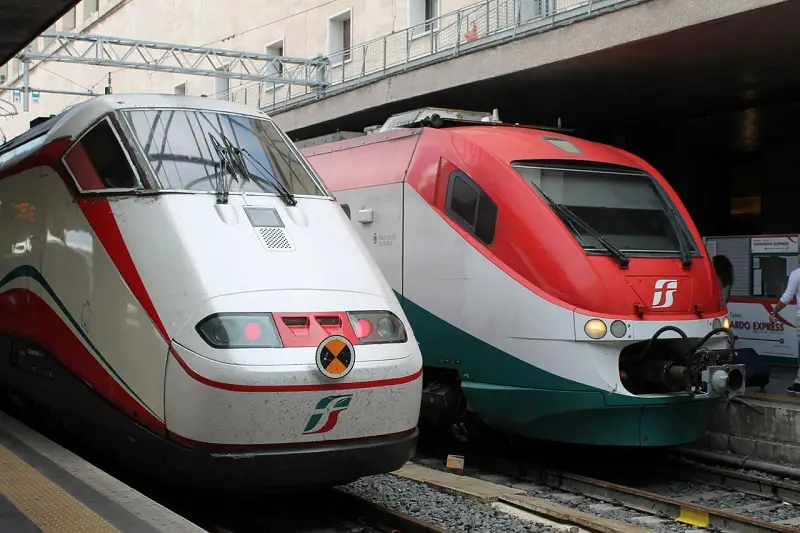Key Facts
- Understanding **time** in Italian is crucial for navigating **train travel**, which is both inexpensive and extensive in Italy.
- The term **in ritardo** signifies being **late**, while **in orario** indicates being **on time**.
- There are different terms for **early** and **late**: **in anticipo** and **presto** for early; **in ritardo** and **tardi** for late.
- The phrase about Mussolini reflects a common **myth** regarding train punctuality in Italy, illustrating cultural perceptions of time.
Talking about time in Italian:
To understand if the train is arriving early or late, it is important to know time in Italian. Train travel in Italy is both inexpensive and vast. The Italian word for “late” is “in ritardo“
Il treno Roma-Firenze è venti minuti in ritardo– The train from Rome to Florence is twenty minutes late.
Time-related phrases:
- in orario– on time
Il treno Roma-Firenze è stranamente in orario. (The Rome to Florence train surprisingly is on time.)
- in ritardo– late (outside the scheduled time)
Fabio era in ritardo e ha perso il bus. (Fabio was late and missed the bus.)
- tardi– late (in the day, in the later part of something)
È troppo tardi, il museo è già chiuso. (It’s too late (in the day), the museum is already closed.)
- in anticipo– early (i.e., before expected)
Vieni in anticipo alla festa se vuoi mangiare della torta. (Come to the party early if you want some cake.)
- presto– early (i.e., in the first part of something)
È ancora presto, andiamo a bere un’altra birra. (It’s still early, let’s have another beer.)
- sempre– always
Ho sempre voluto guidare un trattore. (I’ve always wanted to drive a tractor.)
- mai– never
Non ho mai munto una mucca. (I’ve never milked a cow.)
- adesso– now
Sto andando adesso in pizzeria. (I’m going to the pizzeria now.)
- a volte– sometimes
A volte parlo da solo. (Sometimes I speak alone.)
- di tanto in tanto– from time to time
Di tanto in tanto Paolo canta per strada. (From time to time Paolo goes busking.)
The meanings of “late” and “early”:
- The difference between the two words in ritardo and tardi for “late”: “In ritardo” means outside the scheduled time- “The 10am train was late”, or “I was late for the appointment”. “Tardi” is “He always works late on a Thursday”, or “It’s pretty late to be drinking coffee.”
- The difference between the two types of early in anticipo and presto for “early”. “In anticipo” means “earlier than the scheduled time”, while “presto” means “early in the evening” “early in their relationship”, etc.
Mussolini and the trains:
Italian speakers often say (although never in fondness): “Quando c’era Mussolini i treni arrivavano in orario.” which means “Mussolini made the trains run on time.” The timely trains are a myth, almost like “Pigs might fly”.
Fabrizio– “Berlusconi ha fatto grandi cose in Italia” (“Berlusconi did great things in Italy.”)
Gloria– “Sicuro, e quando c’era Mussolini i treni arrivavano in orario.” (“Sure, and Mussolini made the trains run on time.”)
